Canned beans are a convenient staple in many kitchens, offering a quick source of protein and fiber. However, not all canned beans are created equal. Some contain high levels of sodium, additives, or preservatives that may pose health risks. This guide highlights ten canned beans to avoid if you’re mindful of your well-being. Each entry examines specific concerns, providing insight into why these beans might not be the best choice for your pantry.
Salty Navy Beans
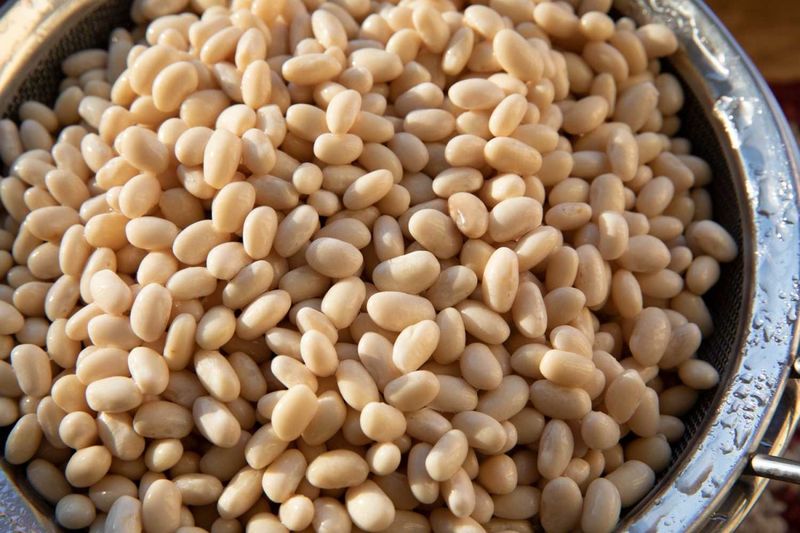
Packed with protein, navy beans seem like a healthy choice, but excessive sodium levels can make them a poor option. An average can contains over 1,000 milligrams of sodium, far surpassing the daily recommended limit for many. This hidden saltiness can elevate blood pressure and strain the heart.
For those watching their salt intake, these beans may be better left on the shelf. Instead, opt for a low-sodium or no-salt-added variety to enjoy the benefits without the risks. Taste and health consciousness can coexist with a little extra scrutiny.
Sugar-Loaded Baked Beans

Baked beans are a comfort food staple, but they often come with added sugars. Some brands pack their cans with over 20 grams of sugar per serving, equivalent to several teaspoons.
This sweetness can contribute to weight gain and elevate blood sugar levels, making them a risky choice for those with diabetes. To enjoy baked beans without the sugar spike, look for options with natural sweeteners or reduced sugar content.
Remember, the comforting taste of baked beans doesn’t have to come with a side of health concerns.
Preservative-Laden Kidney Beans
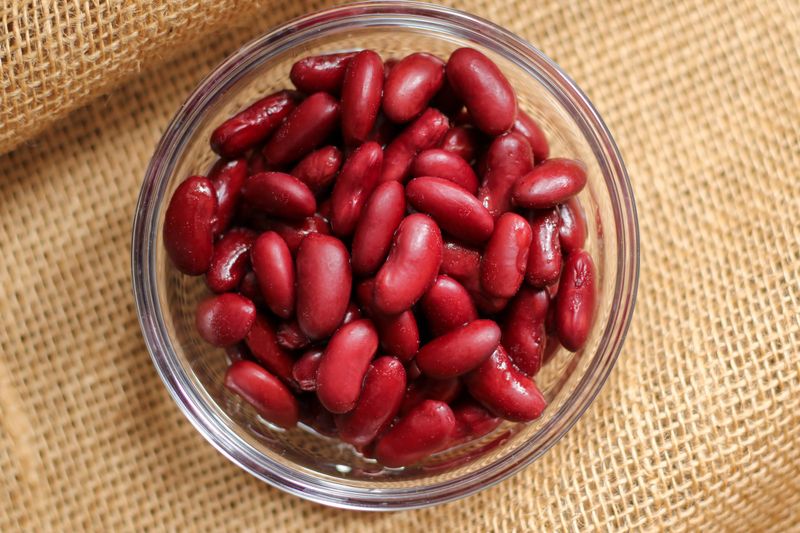
Kidney beans provide essential nutrients, but some canned varieties are loaded with preservatives. These chemicals enhance shelf life but can cause digestive issues for sensitive individuals.
Look closely at the label; ingredients like sodium benzoate and potassium sorbate may be present. Choosing fresh or dried beans may offer a healthier alternative without compromising on flavor or quality.
Your gut will thank you for choosing cleaner options, ensuring that the kidney beans you enjoy are as pure as they are delicious.
Artificially Colored Black Beans
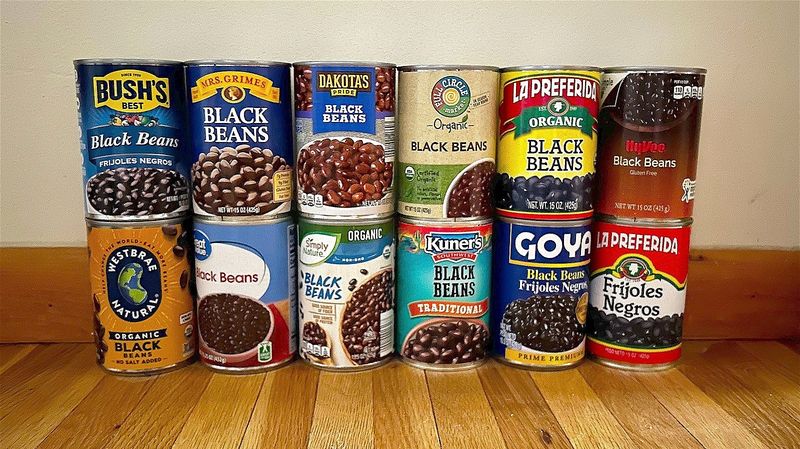
Black beans are a nutritious choice, but some canned versions contain artificial coloring. These synthetic additives enhance visual appeal but offer no nutritional value.
Artificial colors may cause allergic reactions or hyperactivity in sensitive individuals. Checking labels for ingredients like Red 40 or Yellow 5 can help you avoid these unnecessary extras.
Enjoy the natural beauty and taste of black beans by selecting products free from artificial enhancements, letting their inherent goodness shine through.
High Fructose Pinto Beans
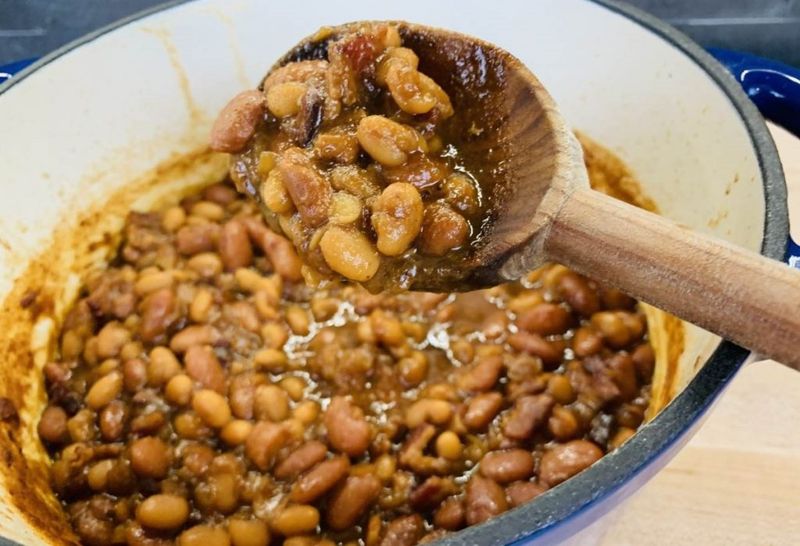
Pinto beans are versatile, but high fructose corn syrup (HFCS) can turn them into an unhealthy option. This sweetener is linked to obesity and insulin resistance, hidden in some canned varieties.
By scrutinizing labels, you can avoid this ingredient, opting for brands that offer pure pinto beans without the added sugars. Your taste buds and waistline will appreciate the choice.
The simplicity of pinto beans doesn’t need to be overshadowed by unhealthy additives, ensuring a wholesome addition to your meals.
Fatty Refried Beans
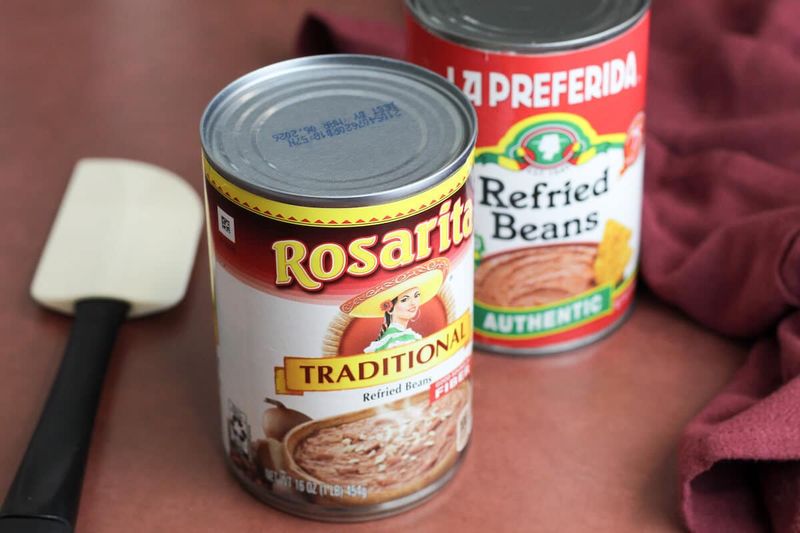
Refried beans are a flavorful addition to many dishes, but some canned versions contain high levels of unhealthy fats. Lard or hydrogenated oils are common ingredients, contributing to cholesterol and heart disease.
Those seeking heart-healthy choices may want to steer clear, selecting reduced-fat versions or making their own at home. Homemade refried beans offer control over ingredients without sacrificing taste.
The delicious depth refried beans bring to a dish doesn’t need to come with an unhealthy fat content lurking in the background.
Chemical-Rich Chili Beans
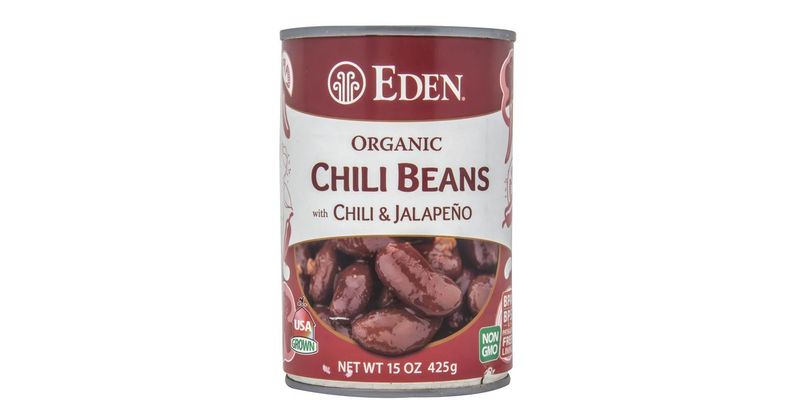
Chili beans bring spice and warmth, but chemical additives can diminish their appeal. Some canned options include flavor enhancers like monosodium glutamate (MSG), which may cause reactions in sensitive individuals.
For a cleaner choice, look for cans marked with “no added MSG” or cook chili beans from scratch to ensure a pure, flavorful experience.
The robust taste of chili beans can be achieved without a cocktail of chemicals, offering both satisfaction and peace of mind in every bite.
Sodium-Laden Butter Beans
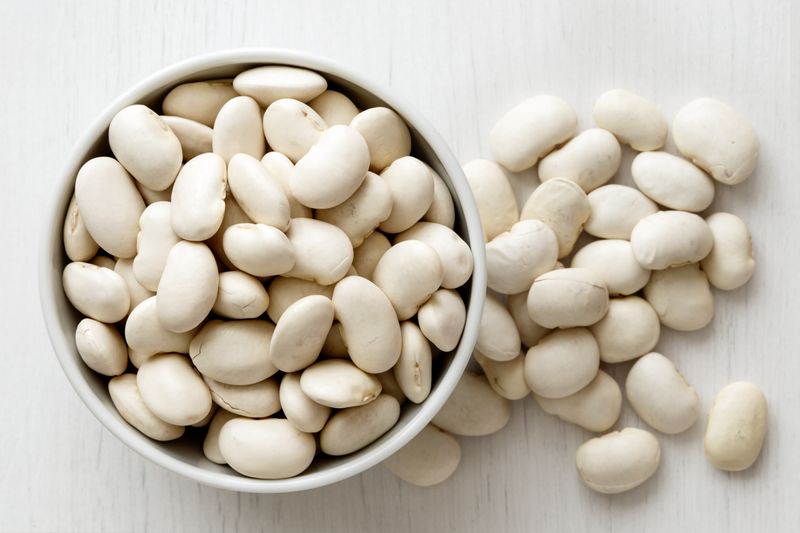
Butter beans, smooth and creamy, often come with excessive sodium levels. A single serving can contain over 800 milligrams, posing a risk to those monitoring their salt intake.
Reducing sodium doesn’t mean sacrificing flavor; no-salt-added versions can bring the same creamy texture without the health risks.
Ensuring a heart-healthy pantry includes vigilant label reading, allowing you to enjoy these beans without sodium overshadowing their culinary charm.
Additive-Heavy Garbanzo Beans
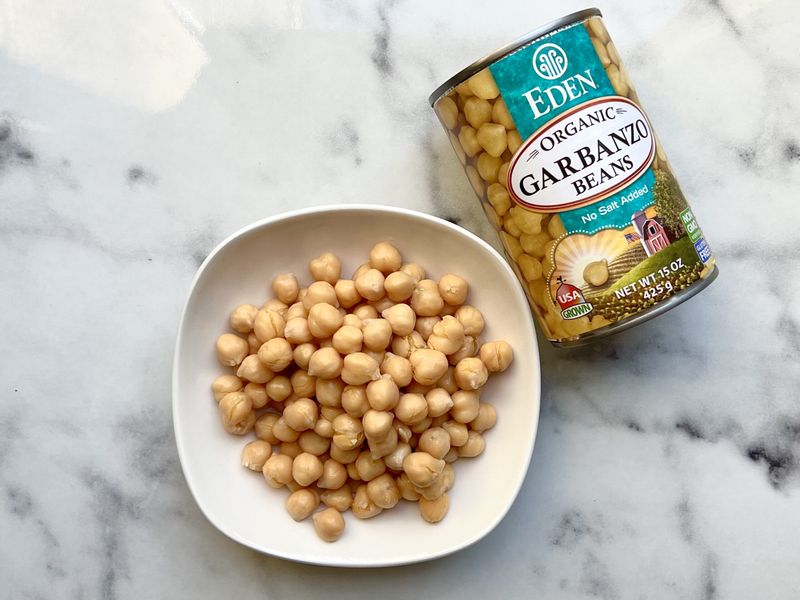
Garbanzo beans, or chickpeas, are a dietary staple, yet some canned versions are filled with unnecessary additives. These chemicals preserve texture but may interfere with digestion or cause allergies.
Choosing garbanzo beans with minimal ingredients helps maintain their natural nutritional profile, providing fiber and protein without the extras.
Your belly will thank you for selecting clean, simple ingredients, reaffirming the wholesome nature of this versatile legume.
Flavor-Enhanced Cannellini Beans

Flavor enhancers in cannellini beans aim to boost taste but can cloud the bean’s natural flavor. Additives like autolyzed yeast extract may contribute to migraines or digestive discomfort.
Opting for simple, ingredient-focused products lets the mild, nutty flavor of cannellini beans shine without interference.
Relishing the authentic taste of cannellini beans is as easy as choosing options that prioritize purity, offering a delightful, unadulterated bean experience.
Leave a comment